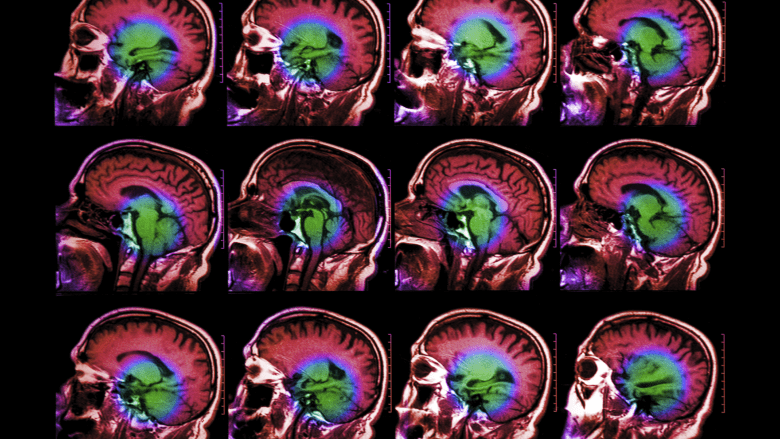A person who has suffered a head injury should be immediately evaluated for concussion by an athletic trainer, coach, or medical professional. If a coach or trainer suspects a concussion, then the patient may be referred to a medical professional for further evaluation.

An MRI scan is ordered to rule out blood clots after a concussion.
In This Article:
Patient and witness interviews. The patient and witnesses to the injury will be asked how the injury occurred, the type of force involved, and what areas of the body were affected. Discussing the injury with the patient and witnesses can help clarify the diagnosis:
- Force. Knowing how the injury occurred can help experts estimate the force of the hit or blow that caused the concussion. The greater the force involved the greater the chances for more severe symptoms. (If a patient shows moderate to severe concussion symptoms from a relatively light force, it may be because the patient has a particular vulnerability to concussions or that other physical or psychological factors are at play.)
- Location. Where the brain was injured can determine concussion symptoms. For example, a person who suffers an injury to the back of the head—either by a direct blow or whiplash—may experience blurred vision, problems with balance, and fatigue.
- Loss of consciousness. Whether or not the patient lost consciousness, and if so, for how long, does not determine the severity of a brain injury; rather, it is just one indicator. 90% of concussions do not involve loss of consciousness, and many of those are worse than concussions in which the patient lost consciousness.
When there are no witnesses to an injury, a person with a suspected concussion is encouraged to be evaluated in a physician’s office or hospital.
Physical exam and cognitive assessment. A person who has suffered a concussion should undergo a comprehensive neurological and physical exam. Eye movements, balance, and coordination should be evaluated.
See What Is a Concussion Specialist?
A person should also undergo a cognitive assessment, during which he or she will be asked several questions to evaluate thinking and remembering. Specific questions about the traumatic injury and the events immediately before and after it can help determine whether amnesia (memory loss) has occurred. Even seconds of amnesia may indicate a more serious injury.
Medical Imaging. Concussions can impair brain functioning but they typically do not cause structural changes to the brain that can be seen with medical imaging. A CT scan or MRI may be ordered as precaution to rule out a blood clot or other injury.
Evaluation by a neuropsychologist. In certain cases, particularly in cases with recovery lasting more than 5-10 days, a patient may be referred to a neuropsychologist who can fully assess memory, concentration, information processing, executive function, and reaction time.
In the past, physicians graded concussions by severity (e.g. level 1, 2 or 3), but this grading system is no longer used. Medical research and experience has shown that it is difficult to determine the severity of a concussion during the initial assessment. Concussion severity can only be judged through observation of symptoms over time.


